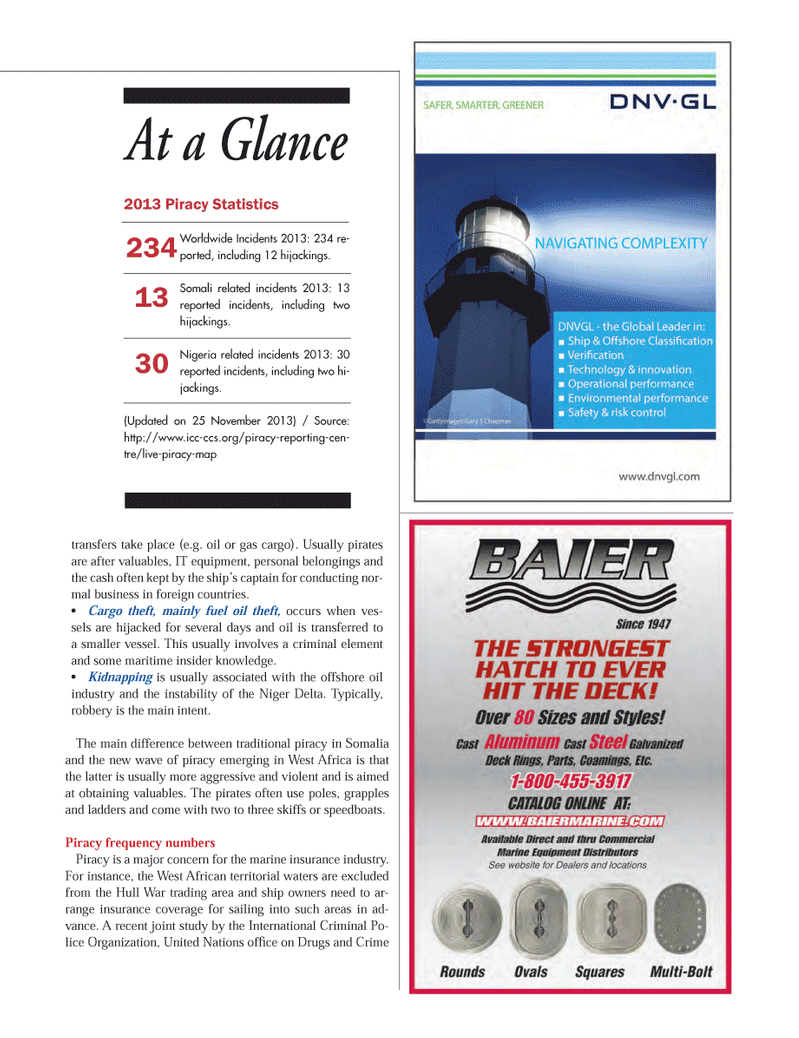
Page 25: of Maritime Logistics Professional Magazine (Q1 2014)
The Energy Edition: Exploration, Production & Transportation
Read this page in Pdf, Flash or Html5 edition of Q1 2014 Maritime Logistics Professional Magazine
transfers take place (e.g. oil or gas cargo). Usually pirates are after valuables, IT equipment, personal belongings and the cash often kept by the ship’s captain for conducting nor- mal business in foreign countries. Cargo theft, mainly fuel oil theft, occurs when ves- sels are hijacked for several days and oil is transferred to a smaller vessel. This usually involves a criminal element and some maritime insider knowledge. Kidnapping is usually associated with the offshore oil industry and the instability of the Niger Delta. Typically, robbery is the main intent.
The main difference between traditional piracy in Somalia and the new wave of piracy emerging in West Africa is that the latter is usually more aggressive and violent and is aimed at obtaining valuables. The pirates often use poles, grapples and ladders and come with two to three skiffs or speedboats.
Piracy frequency numbers
Piracy is a major concern for the marine insurance industry.
For instance, the West African territorial waters are excluded from the Hull War trading area and ship owners need to ar- range insurance coverage for sailing into such areas in ad- vance. A recent joint study by the International Criminal Po- lice Organization, United Nations offi ce on Drugs and Crime
At a Glance 2013 Piracy Statistics
Worldwide Incidents 2013: 234 re- ported, including 12 hijackings.
Somali related incidents 2013: 13 reported incidents, including two hijackings.
Nigeria related incidents 2013: 30 reported incidents, including two hi- jackings. (Updated on 25 November 2013) / Source: http://www.icc-ccs.org/piracy-reporting-cen- tre/live-piracy-map 234 13 30
MP Q1 2014 18-33.indd 25 2/26/2014 1:24:43 PM

 24
24

 26
26
